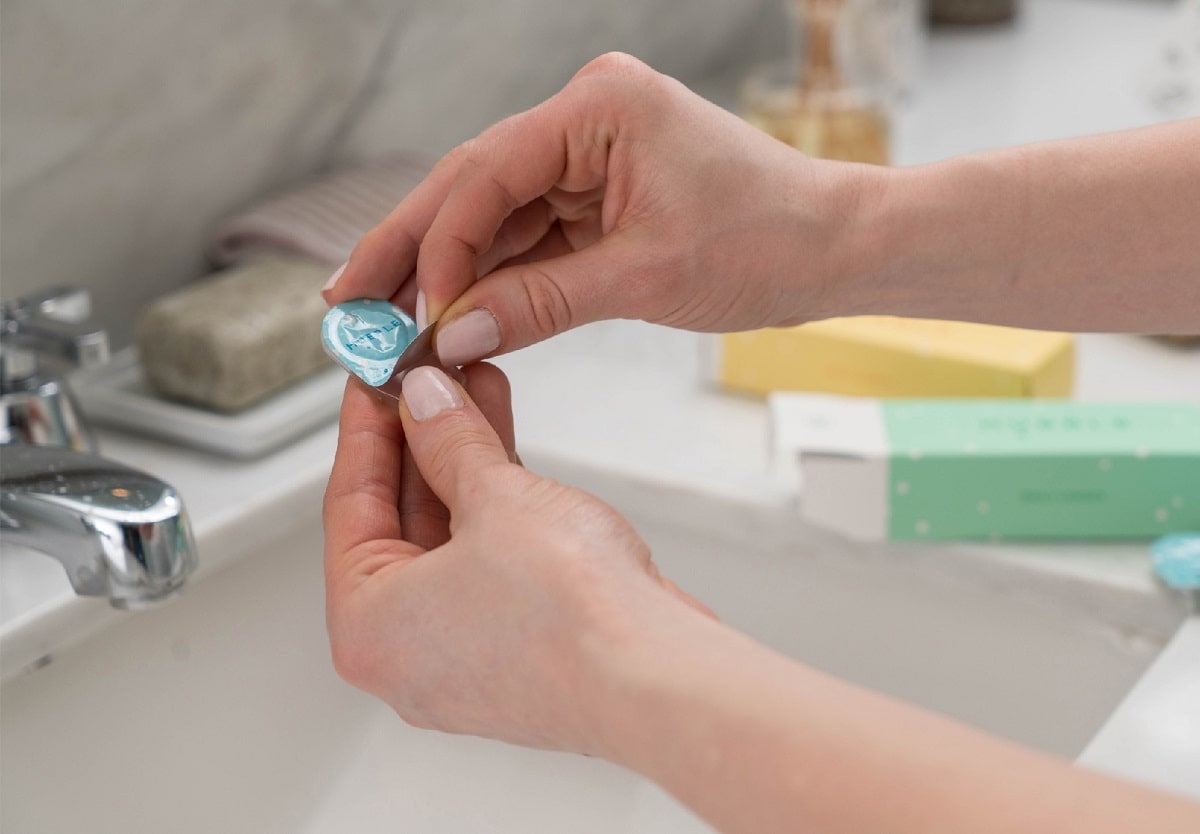1
HOME > Tips & Advice >
GLASSES VS CONTACT LENSES: HOW TO CHOOSE THE RIGHT OPTION FOR YOU
Written by Menswear Style in Tips & Advice on the 29th October 2021

Glasses and contact lenses both provide clear vision. While glasses are worn outside of the eye, contacts sit directly on the surface of the eyes. Despite this difference in placement, they both serve to correct vision deficiencies. So why choose between them? Glasses and contact lenses each have their advantages depending on your lifestyle, needs, and preferences. By knowing what they are, you can easily find the option that best suits you. Therefore, you should look more closely into the different benefits and limitations of each. In this article, we will explain the factors you need to take into consideration when choosing the right option for yourself.
Your lifestyle
If you lead a very active lifestyle, then you should consider contact lenses. Because they sit directly on the surface of the eyes, contacts are ideal for activities that could potentially cause damage to glasses from impact, such as against a wall or while riding a bike. In addition to protecting your glasses from damage, contacts also provide better comfort. Since they do not have nose pads and other parts that can irritate the face area, wearing them is a very comfortable experience in their own right. If this sounds particularly appealing to you, it may be time to ditch those silvery-looking glasses and opt for contact lenses instead.

Your budget
Just like with most things, contacts are almost always slightly more expensive than glasses. However, if you plan on wearing your corrective lenses for extended periods each day, then it might be in your best interest to choose the more expensive option because cheap contact lenses may not last as long and can potentially cause more damage to your eyes in comparison to glasses. Given that the average cost of prescription lenses is higher for contacts, it may be more cost-effective to use glasses on a day-to-day basis and switch to contacts only when needed. However, keep in mind that some prescriptions can only be produced by customising your contact lenses, so unless you have a strong preference for glasses, this option may not always apply to you depending on your prescription.
Your vision correction needs
Another factor to take into consideration is your vision correction needs. People who have prescriptions considered too strong for contact lenses will usually opt for glasses instead because wearing contacts over such a strong prescription can cause harm to the eyes and lead to further vision problems down the line. In addition, those with eye conditions that require them to open their eyes as little as possible may also prefer using glasses since they have more freedom of movement when opening or closing their eyes. Also, bifocal and progressive prescriptions are generally easier to produce with glasses than contact lenses. However, if your prescription is stable and does not change much over time, multi-focal contacts can be just as good as glasses in regards to providing clear vision at all distances. Therefore, take note of how often your eyesight changes before deciding to acquire eyeglasses or contact lenses.

Your comfort requirements
Consider how much your eyes can handle. If you have sensitive eyes, glasses might be a better choice for you because they will not put any pressure on the surface of the eye. Contacts tend to have more material between your eye and corrective lens which can sometimes cause discomfort if you have an allergy or sensitivity with that type of material. However, contacts are thinner than glasses so they are typically lighter in weight. So if wearing something lightweight is important to you, then contact lenses would probably work best for you since most people who wear them report little discomfort when using them regularly. Depending on your personal preference, either option could be good for you.
Your eye health and special precautions
Contacts require more care than glasses because they directly interact with the surface of your eyes around the clock. Contacts must be removed before you sleep, not only to allow for proper rest but also so that bacteria are not allowed to develop as your eyes are closed and uncovered during this time as it can lead to chronic irritation throughout the day if left untreated. Glasses do not typically need any additional care except for cases where they have been scratched or damaged, in which case you should replace them accordingly. However, if your eyes are particularly susceptible to dryness and discomfort, it may be in your best interest to choose glasses over contacts, since the latter can cause further damage when used without proper care.

The bottom line is that both contact lenses and glasses have their own set of pros and cons, so it becomes a matter of personal preference in the long run. The important thing is to find something that works for you in regards to what you want out of corrective vision aids. Just remember the aspects discussed above so you know what to look out for in your search so that you can find a pair of vision accessories that last throughout the day without causing too much strain on your eyes, allowing for clear and continuous usage.
Trending
2
3
4
5
6
7
8
9
10









